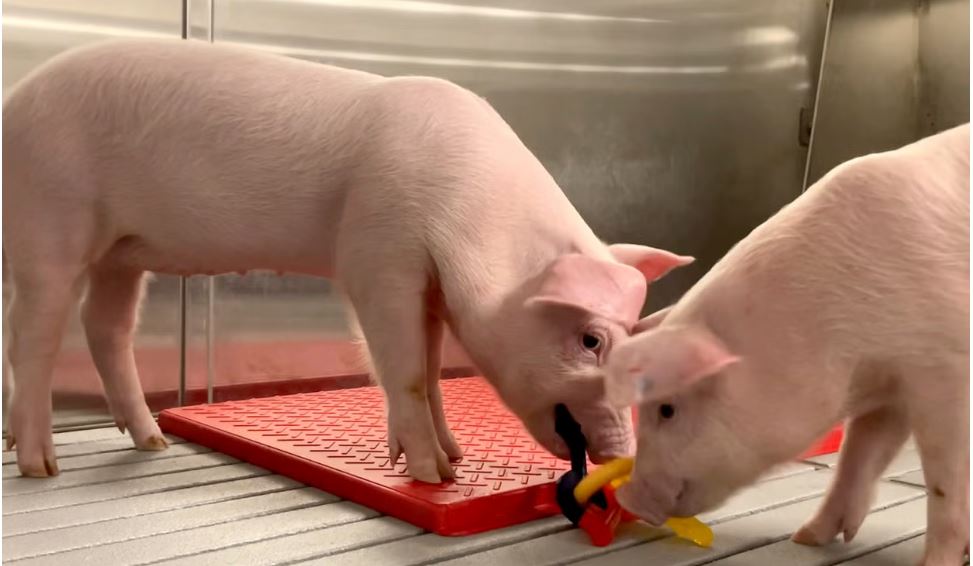- Monday, 8 December 2025
Pigs bred to grow kidneys and hearts for human transplants
Blacksburg, July 23: Wide-eyed piglets rushing to check out the visitors to their unusual barn just might represent the future of organ transplantation – and there's no rolling around in the mud here.
The first gene-edited pig organs ever transplanted into people came from animals born on this special research farm in the Blue Ridge mountains – behind locked gates, where entry requires washing down your vehicle, swapping your clothes for medical scrubs and stepping into tubs of disinfectant to clean your boots between each air-conditioned barn.
"These are precious animals," said David Ayares of Revivicor Inc., who spent decades learning to clone pigs with just the right genetic changes to allow those first audacious experiments.
The biosecurity gets even tighter just a few miles away in Christiansburg, Virginia, where a new herd is being raised – pigs expected to supply organs for formal studies of animal-to-human transplantation as soon as next year.
This massive first-of-its-kind building bears no resemblance to a farm. It's more like a pharmaceutical plant. And part of it is closed to all but certain carefully chosen employees who take a timed shower, don company-provided clothes and shoes, and then enter an enclave where piglets are growing up.
Behind that protective barrier are some of the world's cleanest pigs. They breathe air and drink water that's better filtered against contaminants than what's required for people. Even their feed gets disinfected – all to prevent them from picking up any possible infections that might ultimately harm a transplant recipient. "We designed this facility to protect the pigs against contamination from the environment and from people," said Matthew VonEsch of United Therapeutics, Revivicor's parent company. "Every person that enters this building is a possible pathogen risk."
The Associated Press got a peek at what it takes to clone and raise designer pigs for their organs – including a $75 million "designated pathogen-free facility" built to meet Food and Drug Administration safety standards for xenotransplantation.
Creating pigs to ease the shortage of human organs
Thousands of Americans each year die waiting for a transplant, and many experts acknowledge there never will be enough human donors to meet the need.
Animals offer the tantalizing promise of a ready-made supply. After decades of failed attempts, companies including Revivicor, eGenesis and Makana Therapeutics are engineering pigs to be more humanlike.
So far in the U.S. there have been four "compassionate use" transplants, last-ditch experiments into dying patients — two hearts and two kidneys. Revivicor provided both hearts and one of the kidneys. While the four patients died within a few months, they offered valuable lessons for researchers ready to try again in people who aren't quite as sick.
Now the FDA is evaluating promising results from experiments in donated human bodies and awaiting results of additional studies of pig organs in baboons before deciding next steps.
They're semi-custom organs — "we're growing these pigs to the size of the recipient," Ayares noted — that won't show the wear-and-tear of aging or chronic disease like most organs donated by people.
Transplant surgeons who've retrieved organs on Revivicor's farm "go, 'Oh my god that's the most beautiful kidney I've ever seen,'" Ayares added. "Same thing when they get the heart, a pink healthy happy heart from a young animal."
The main challenges: how to avoid rejection and whether the animals might carry some unknown infection risk.
The process starts with modifying genes in pig skin cells in a lab. Revivicor initially deleted a gene that produces a sugar named alpha-gal, which triggers immediate destruction from the human immune system. (AP)





-square-thumb.jpg)











